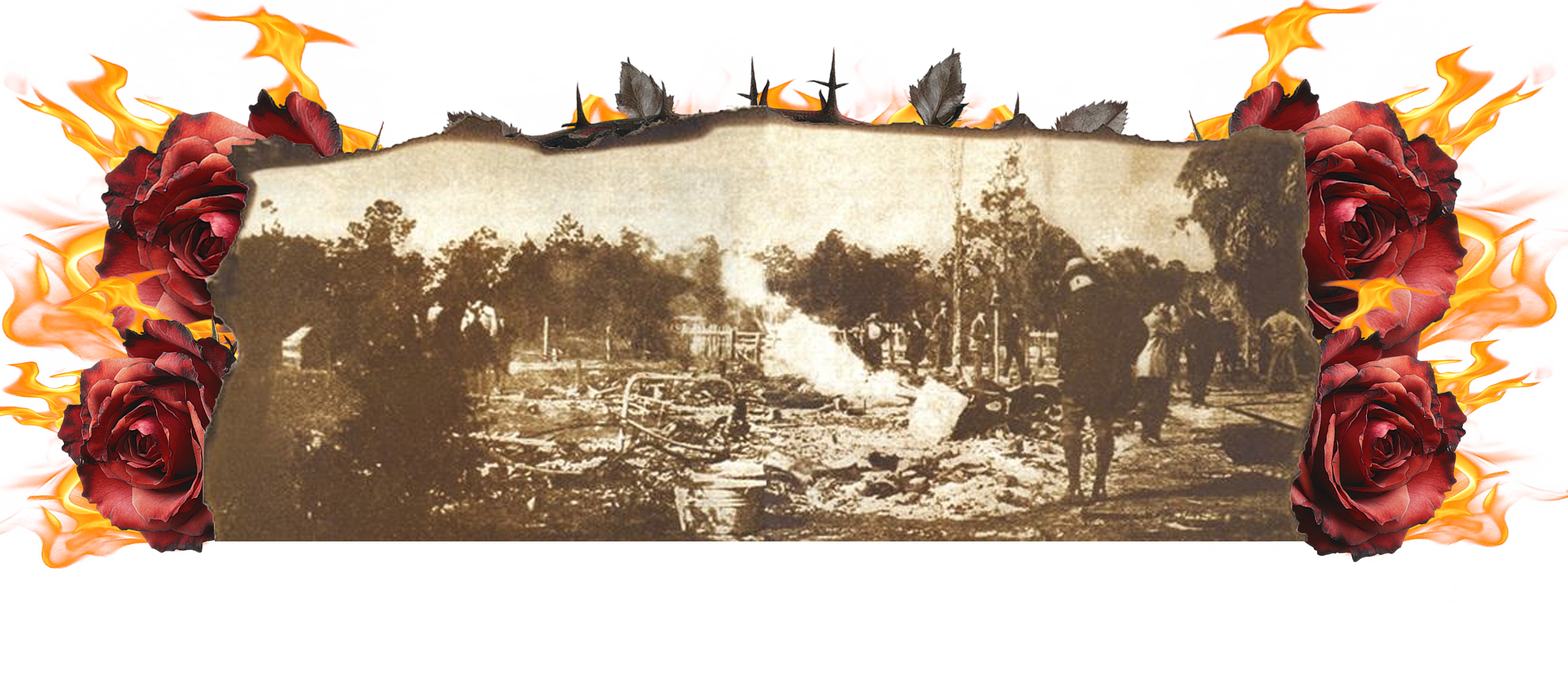Rosewood Massacre Timeline

Individuals gather to view the remains of the town of Rosewood. Properties were lost and families sepereated. Circa 1923 (Bettmann Archives/ Getty Images)
1923
The Rosewood Massacre was a devastating, racially motivated attack on the Black town of Rosewood, Florida, on January 4th 1923. The violence was sparked by a false claim from Fannie Taylor, a white woman in the nearby town of Sumner, who alleged that she had been assaulted by a Black man. Without evidence, white mobs from surrounding areas descended on Rosewood with brutal force. Over the course of a week, they looted and burned homes, churches, and businesses, driving Black residents to flee in terror. At least eight people were killed—though some estimates suggest the death toll was higher—and the once-thriving town was left in ruins. Law enforcement failed to intervene to protect Rosewood’s Black residents; in some cases, officers were even reported to have participated in the violence or stood by as it unfolded.

1993
In 1993, the Florida Legislature commissioned a formal investigation into the Rosewood Massacre to uncover the truth about the events of January 1923 and determine whether the state bore responsibility. The investigative team was composed of scholars and researchers from three major institutions: Florida A&M University (FAMU), Florida State University (FSU), and the University of Florida (UF). This inter-university effort was led by historian Dr. Maxine Jones of FSU and aimed to gather archival evidence, survivor testimonies, and historical documentation. The resulting report, A Documented History of the Incident Which Occurred at Rosewood, Florida in January 1923, became a critical resource in the state’s acknowledgment of the massacre. The findings from this investigation laid the foundation for Florida’s historic decision to provide financial compensation to survivors and their descendants in 1994—making it the first time a U.S. state paid reparations for racial violence.

2025
2025 marks the 40th year since the first family gathering was held in 1985. Each year, descendants of the Rosewood families come together in Florida to honor their ancestors, remember the lives lost in the 1923 massacre, and celebrate the strength of those who survived. What began as a small gathering has grown into a tradition of remembrance, healing, and unity. Through storytelling, shared meals, and community connection, the reunion keeps the history of Rosewood alive and ensures it is passed on to future generations. The event also serves as a powerful platform for education and advocacy, drawing attention to the legacy of racial violence and the ongoing fight for justice. With each passing year, the reunion strengthens the bonds between families and reinforces a collective commitment to truth, resilience, and cultural preservation.